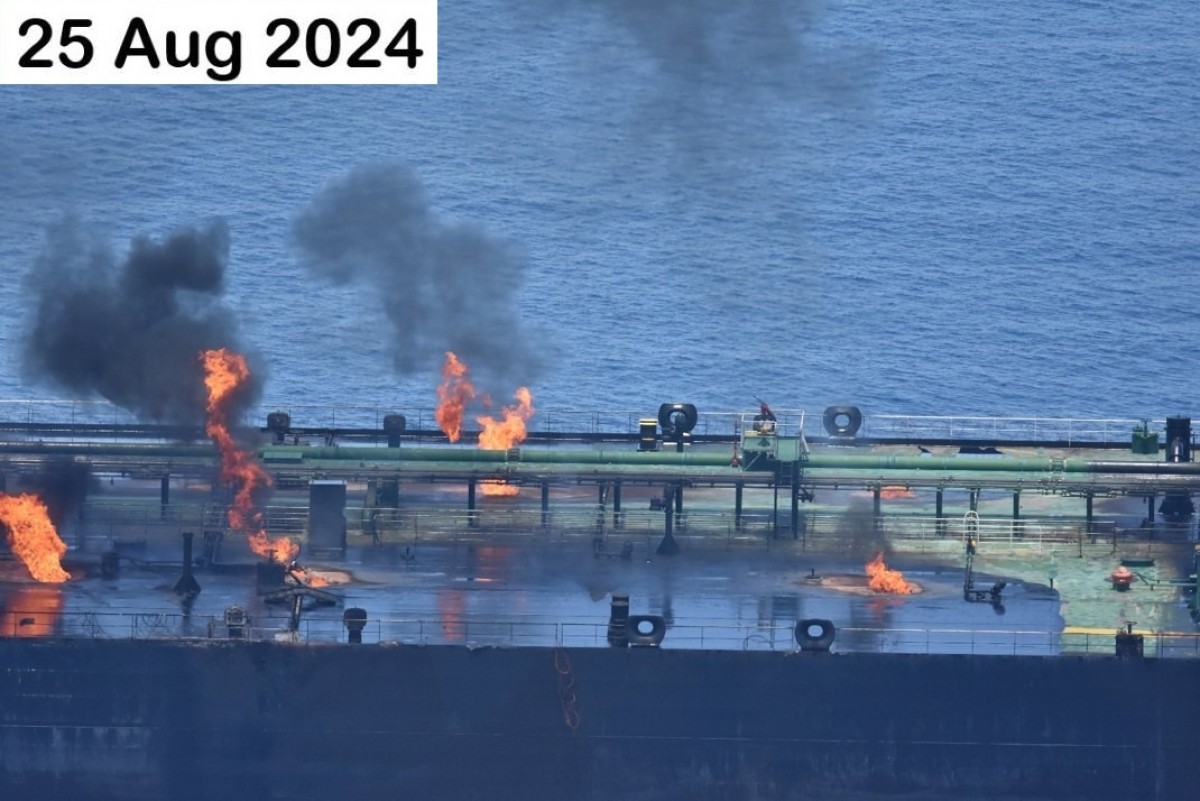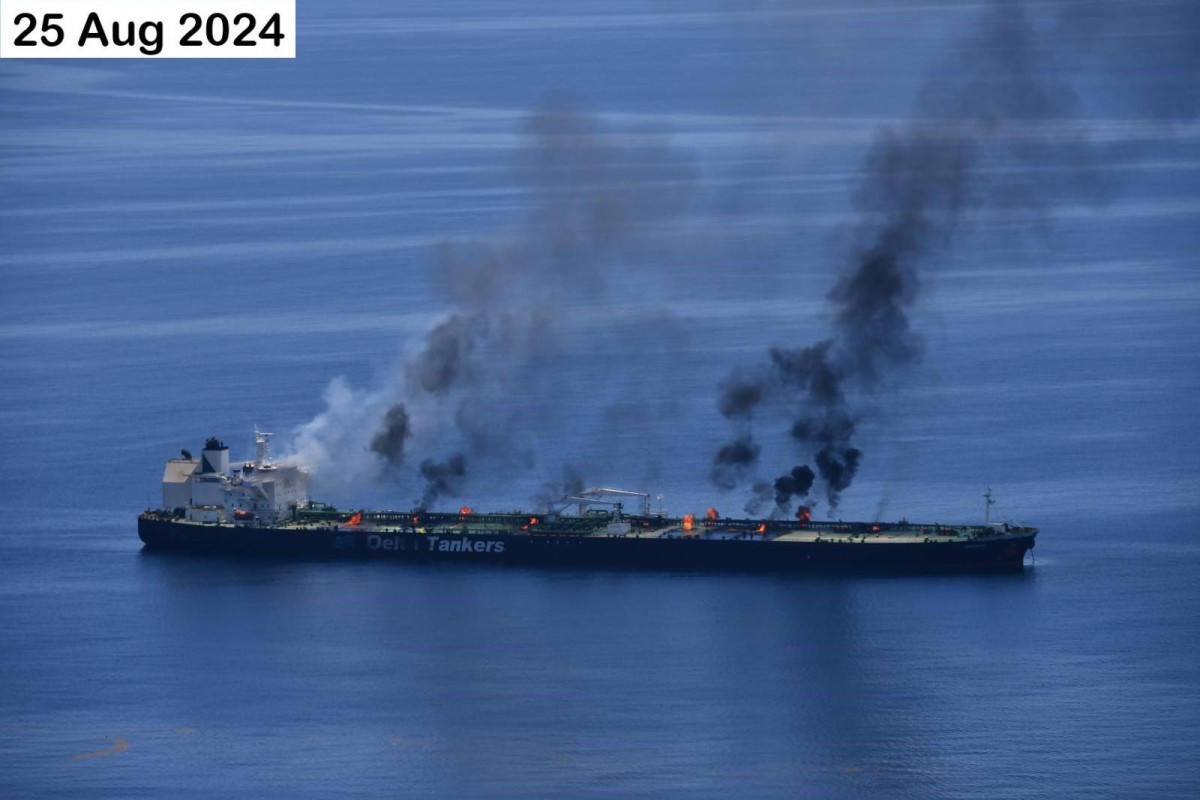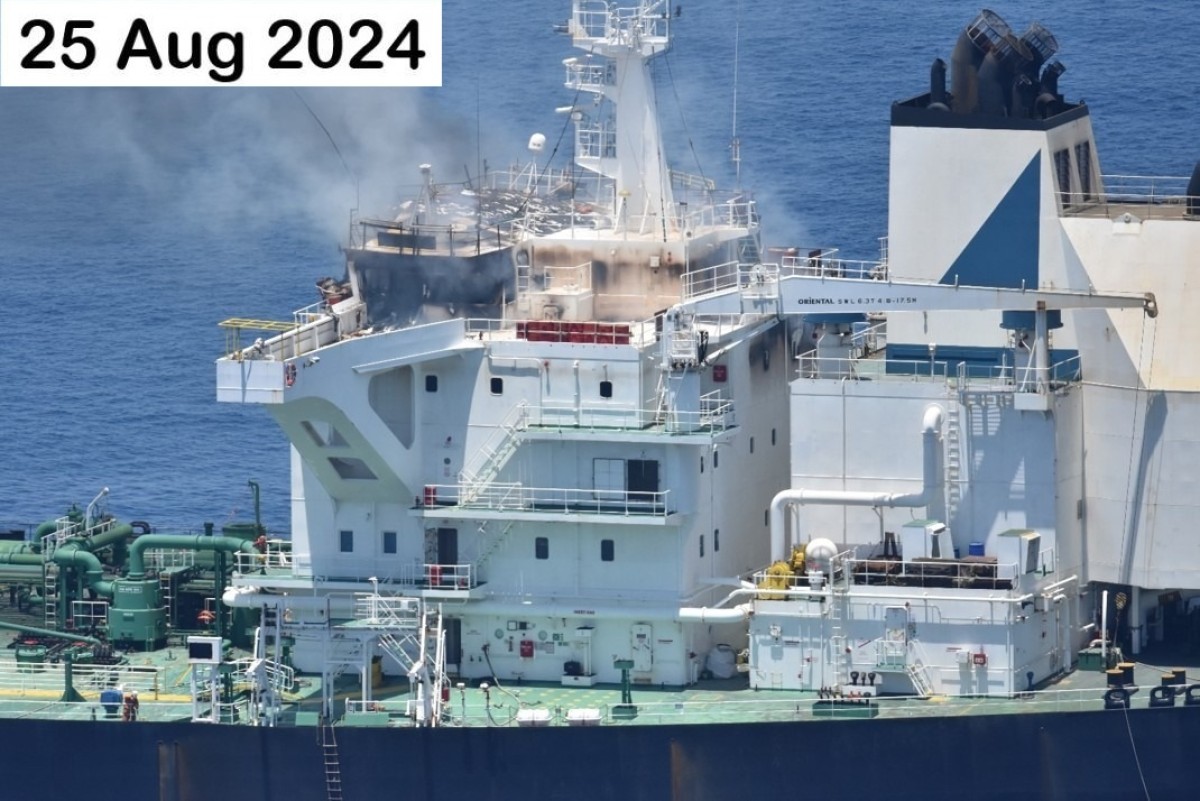An imminent disaster...fire is still burning on the ship “Sounion” off Yemen


The European Union naval mission in the Red Sea, “Aspids”, said in a post on the “X” platform, on Monday, that fires are still burning on the ship “Sounion”, which flies the Greek flag, since last August 23, after an attack by the pro-Yemeni Houthi group. To Iran.
She added, “So far, no clear signs of oil leakage have appeared,” calling on all ships in the region to exercise the utmost caution, as “Sunyon” poses an imminent navigational and environmental danger.
ASPEDS stated that the ship “Sounion” is still anchored in the same location as it was in international territorial waters, stressing that “this type of attack does not only constitute a threat to freedom of navigation, but also to the lives of sailors, the environment, and the lives of all citizens who live in those areas.” The region.”
On Wednesday, 3 projectiles hit the “Sounion” oil tanker off the coast of the city of Hodeidah in western Yemen, causing a fire to break out on board and loss of engine power, according to the UK MTO agency, which is run by the British Navy.
p>The European Union mission in the Red Sea announced, Thursday, according to Agence France-Presse, that it had transferred the tanker’s crew the day after it was damaged in an attack off the coast of Hodeidah, which is controlled by the Houthi rebels in western Yemen, and warned that the ship poses an “environmental danger.”
According to the Greek Ports Authority, the ship “Sounion” is owned by the Greek shipping company “Delta Tankers”, and was carrying a crew of 25 people, including 23 Filipinos and two Russians. It sailed from Iraq and was heading to a port near Athens.
The “Sounion” is the third ship owned by “Delta Tankers” to be attacked in the Red Sea this month, after the “Delta Blue” and “Delta Atlantica” ships, according to shipping data.
The Red Sea is witnessing an imminent environmental catastrophe after the Houthis, loyal to Iran, blew up an oil tanker loaded with 150,000 tons of crude oil, which could lead to a major oil spill that threatens to destroy the marine ecosystem in the region.
On Saturday, the United States expressed its deep concern about the Houthi attacks on the oil tanker “MT Sonion,” as State Department spokesman Matthew Miller said, “The ongoing Houthi attacks threaten to leak one million barrels of oil into the Red Sea, which is... Equivalent to 4 times the size of the Exxon Valdez disaster.”
Miller added in a statement, “While the crew has been evacuated, the Houthis appear intent on sinking the ship and its cargo at sea.”
Miller noted, “Through these attacks, the Houthis have made clear that they are prepared to destroy the fishing industry and regional ecosystems that Yemenis and other communities in the region depend on, just as they have undermined the delivery of vital humanitarian aid through their reckless attacks.”
The Houthi group has been launching attacks on commercial ships in the Red Sea since last November, saying that it is targeting ships loyal to Israel or heading there, but many of the ships it tried to target have nothing to do with Israel.
Since last January, American and British forces have launched strikes on Houthi sites in Yemen in an attempt to deter them and protect maritime navigation.
On Friday, the US Central Command, Centcom, announced the destruction of a missile system belonging to the Iranian-backed Houthis in an area under their control in Yemen.
Centcom said in a statement on the “X” platform: “It has been shown that this missile system poses a clear and imminent threat to American forces, coalition forces, and commercial ships in the region.”

